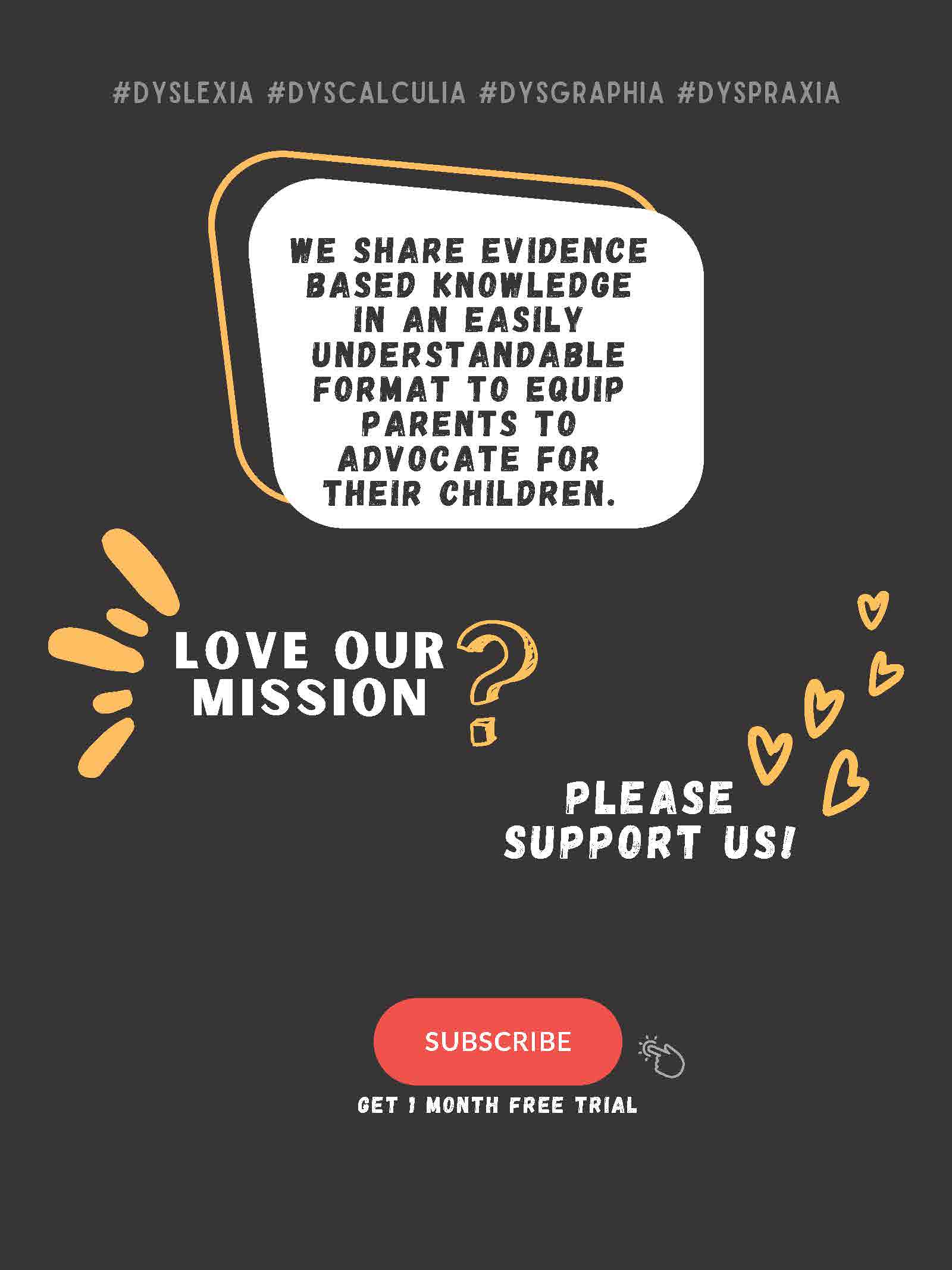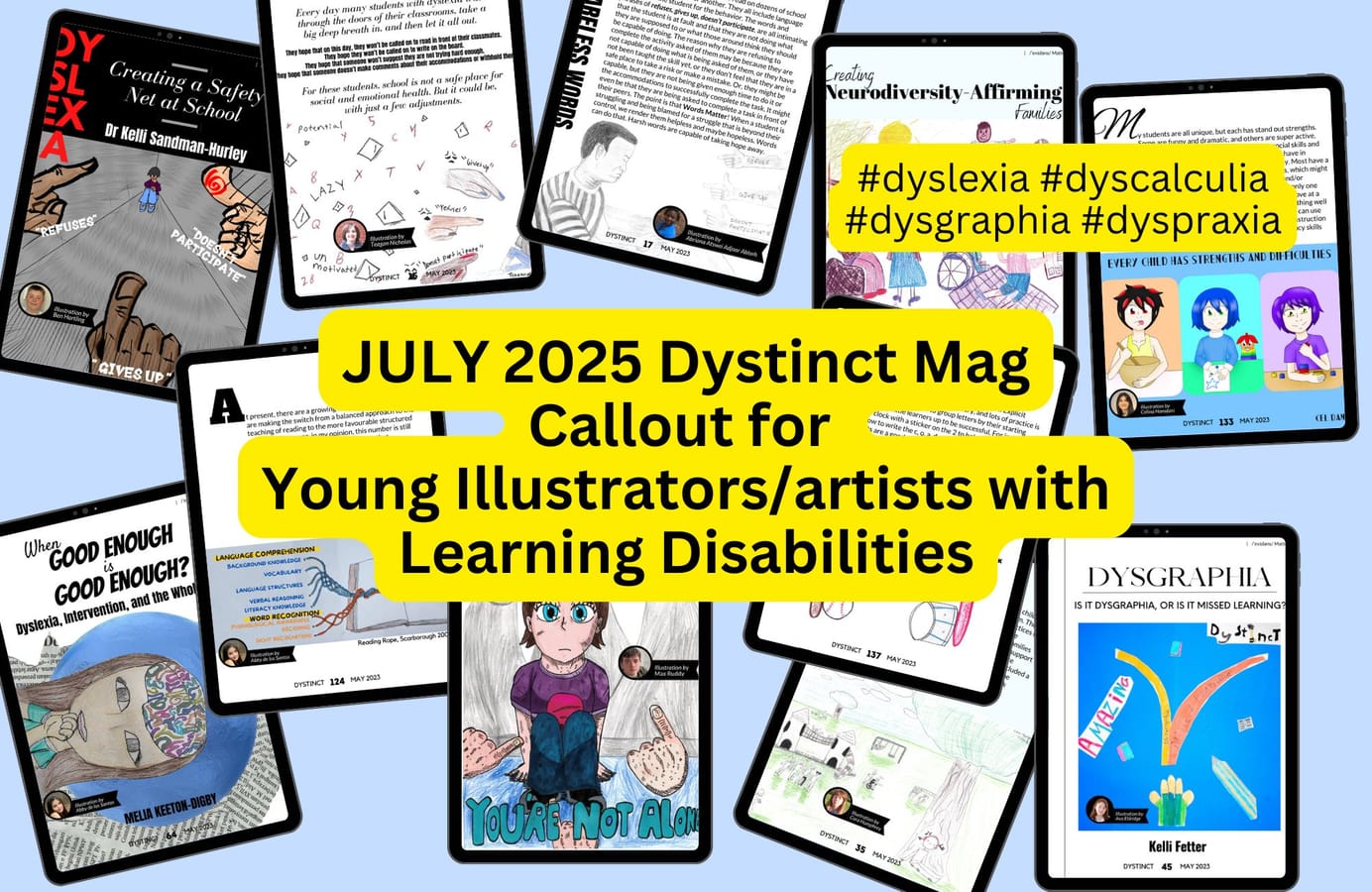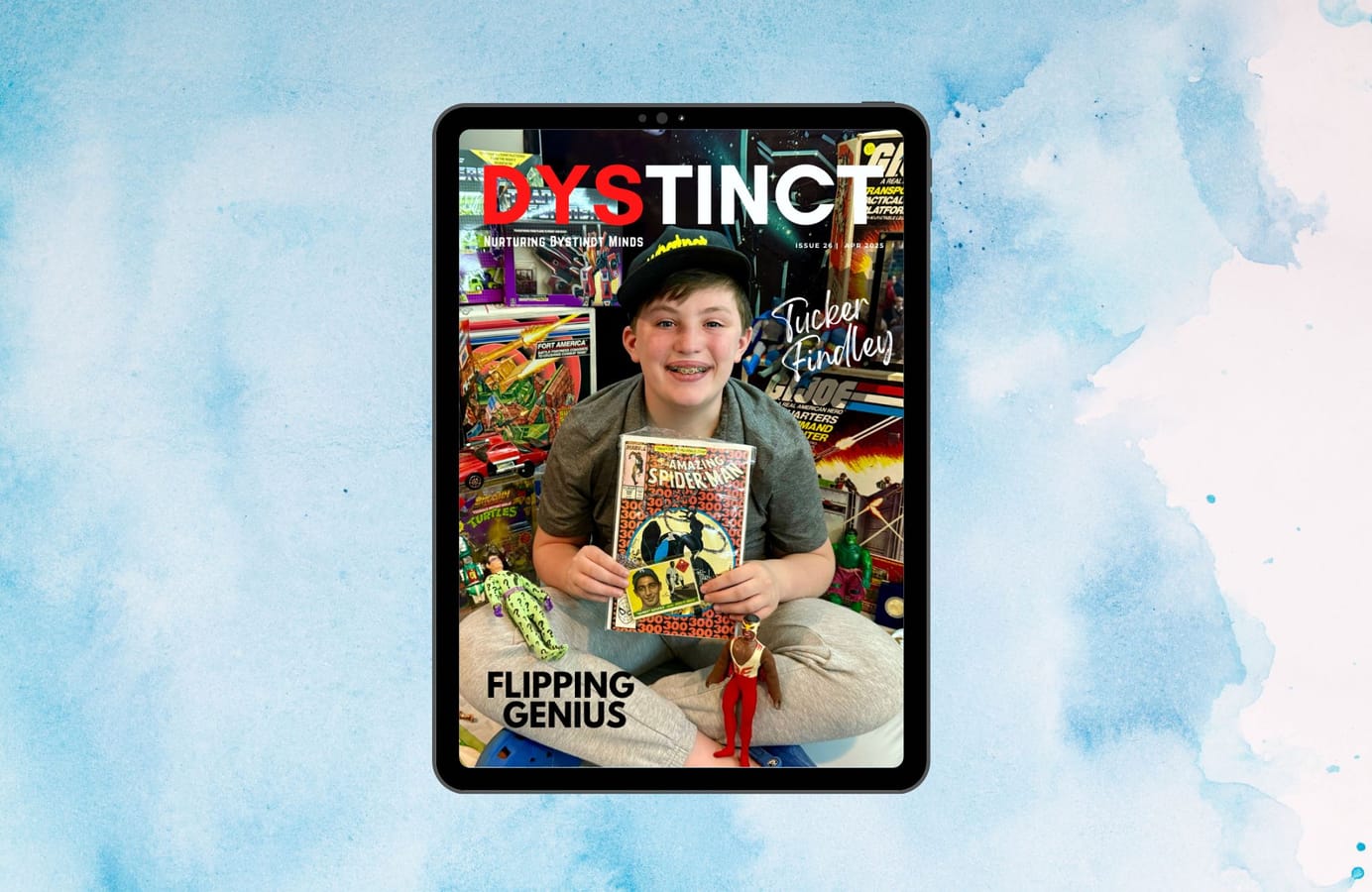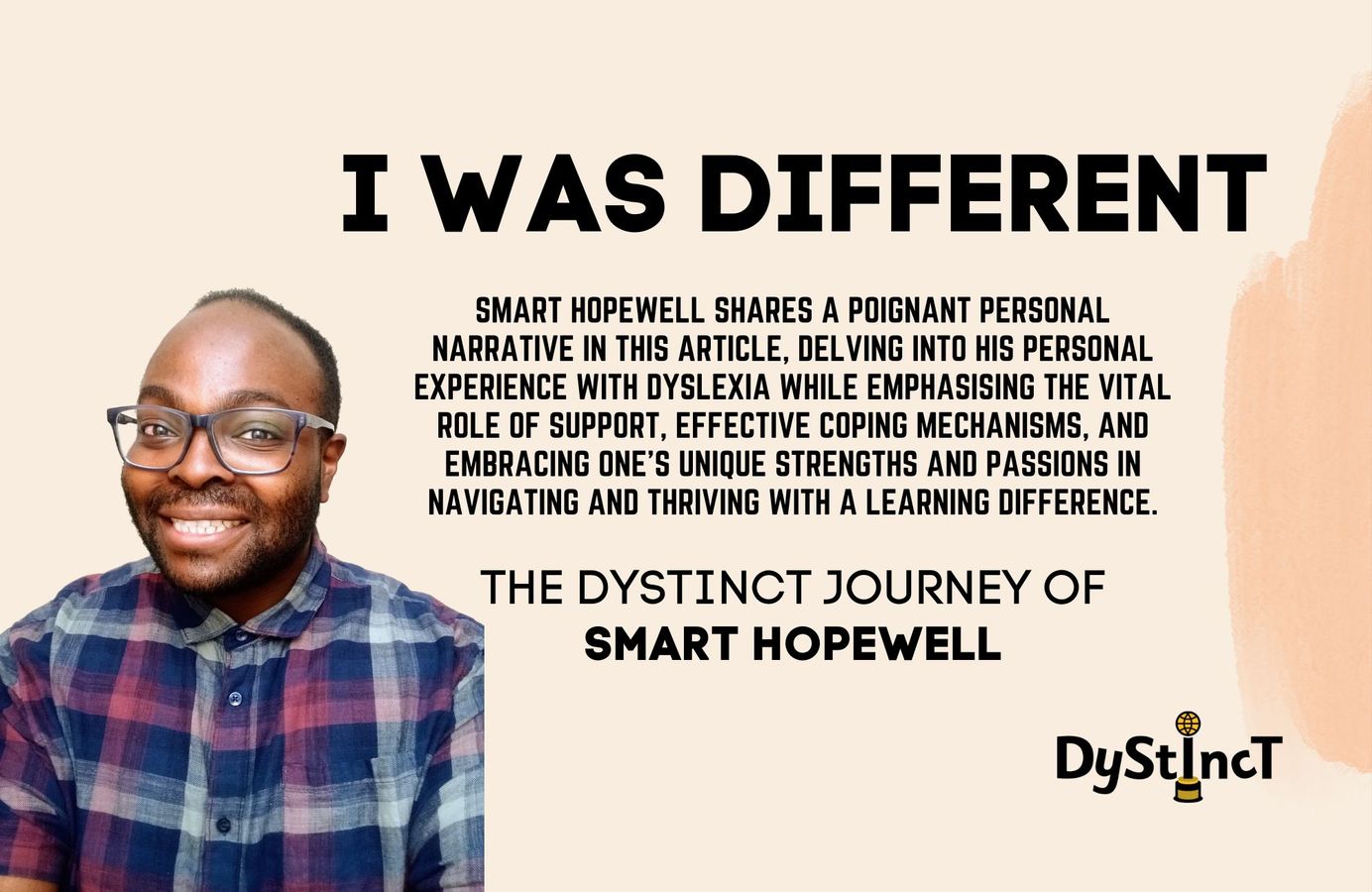
Issue 16: The Dystinct Journey of Smart Hopewell
Smart Hopewell shares a poignant personal narrative in this article, delving into his personal experience with dyslexia while emphasising the vital role of support, effective coping mechanisms, and embracing one's unique strengths and passions in navigating and thriving with a learning difference.
Table of Contents
Origins
From as early as I can remember, I knew that I was different — Going from reading every book in the class to being the slowest or dumbest in class. Neurodiversity wasn't just a reading, writing, or spelling issue for me. It was me, well, part of me and how I lived life.
As a young boy, I spent most of my time playing, creating and writing my own stories in imaginative worlds — Where I wasn't made fun of for looking, talking, and thinking differently from all the other children in school. I never wanted to stand out from the crowd! My desire was to fit in and blend in without any problems. However, that wasn't my experience at all. Most of my early childhood school experience involved me suffering from ridicule by teachers who struggled to understand me or bullying from classmates who thought I was strange.
I would be regularly placed at a table by myself, moved to the back of the class, held back from lunch breaks or sent to sit outside the headmaster's office. I got into a lot of trouble in school — Not due to bad behaviour, but instead due to the teacher's perspectives or struggling to keep up with other children in classes.
I got into a lot of trouble in school.
After multiple visits from my parents to the school to talk to teachers that something was up! They had finally figured out that I was, in fact, a superhero! (cue cape blowing in the wind). Ha ha ha! Yes! I'm kidding, but honestly, I felt a lot like one of the X-Men from the Marvel comic book series - A gifted kid trying to blend in but failing miserably.
My school then advised my parents to get me assessed by an educational psychologist whose role is to assess academically and psychologically "how dyslexic" an individual is. Now it's important to note that each case is different. Being neurodivergent cannot scientifically be contained to a measurement that accurately tells atypical minds (normal brains) how neurodivergent an individual truly is.
An example would be to ask, "How vast is space?"
The answer would be, "We don't know!"
Why?
Because space is endless, it has no end and no beginning — A continuous expanse of expanding stars, moons, planets, galaxies, dark matter, and the list goes on and on.
While it's not a finite description of what neurodiversity is, individuals on the spectrum may have felt this way in more ways than one. Needless to say, after looking at ink splotches on some cards, the psychologist was able to confirm what I knew from the very beginning. That I was different (dyslexic).
After Diagnosis
From here, a long journey was about to begin. All sorts of extracurricular activities, prep school, and clubs were suggested to my parents for me to be enrolled in. These would potentially give me the help I needed to level up and mitigate having dyslexia. I went from school to school, to academy, to tutors. Truly, I am so thankful to my parents for going out of their way to give me the opportunities I needed to broaden my horizons, even if I couldn't see it at the time (Thank you, Mum & Dad).
I am so thankful to my parents for going out of their way to give me the opportunities I needed to broaden my horizons.
In the 1990s, dyslexia was still a phenomenon with little to no explanation. Even renowned figures like Albert Einstein and Thomas Edison were only valued within specific contexts. Yet, these individuals transformed the very way our society lives today.
The Turning Point
But just knowing about renowned neurodivergent figures didn't always help. A few years after my diagnosis, my parents had taken my youngest sibling and me away for the weekend, and we went to London. During that trip, my parents bought me my very first Game Boy Colour. This became part of the moment things began to unlock for me — Knowing how defeated I had been feeling.
On that day, Pokémon Blue (the game) had just been released. This was a special moment! We walked into the store, and our parents said, "You might want to try this game! And while you are at it, why not pick out a Game Boy?" My eyes widened. You can imagine my excitement, and I felt at peace for the first time in a long time. When we got home, I spent numerous hours experiencing the story of a young boy who was different, trying to make it in a new world. To be the best he could be! And that was me! I began to rediscover my storytelling and felt as though I could cope as this game provided a coping mechanism for the chaos in my mind.
I felt at peace for the first time in a long time.
Doing The Impossible
Parents! If you are concerned or worried about your children right now, I truly understand and empathise with your concerns, but know this! Your child is a planet shaker, capable of quite literally doing the impossible. As young people, it's easy for ideals to be pushed onto children due to reality, finance, struggles etc. And the world we live in has a way of robbing us of our childlikeness. Yet this quality is often the very part of ourselves we need most in life when the goings get tough.
Your child is a planet shaker, capable of quite literally doing the impossible.
Trust that your child is made uniquely, and (whether you believe it or not) God has a unique and wonderful plan for their little lives. I am a small part of living proof that this is true. Yes, school, college, and university were tough for me. And if I'm honest, I didn't learn a lot. Sometimes the groundwork and experience are what we, as neurodivergent individuals, need most.
Allowing neurodivergent people to channel their creative prowess into what they are most passionate about is often a critical part of their turning point. This will allow for time to cultivate good coping mechanisms with lots of support and the eventual mastery of their talents when given room to grow and learn. Today I can testify to this. How? Here are some of the things I can do/have done:
- Play instruments
- Write songs
- Write/Edit books
- Write/Edit scripts
- Record, Mix, and Edit Audio
- Videography
- Photography
- Self-record music albums
- Been on multiple missions trips
- Pastored a church
- Voice acting
- Video editing
- Create content
- Graphics Design
- Web design
- Public speaking
- Brand consultancy
- Write articles
- Produced two animated series
Now! While I can't do all of these things at the same level, I am quite capable of utilising each skill when needed. I can't take all the credit because if not for my faith, parents and support structure, none of these would be possible, and I certainly couldn't achieve any of it on my own.
You Are Loved
I want you to know just one thing if you don't remember anything else I've written today. You are loved, you are seen, and there is hope at the end of the tunnel. It won't always look so dire or as though no one understands you as parents or as the child or adult walking through the experience. There are wonderful organisations or publications like Dystinct bringing hope and a word of encouragement. And I am always around, so please consider reaching out if you would like to chat or just want to be encouraged.
Smart Hopewell
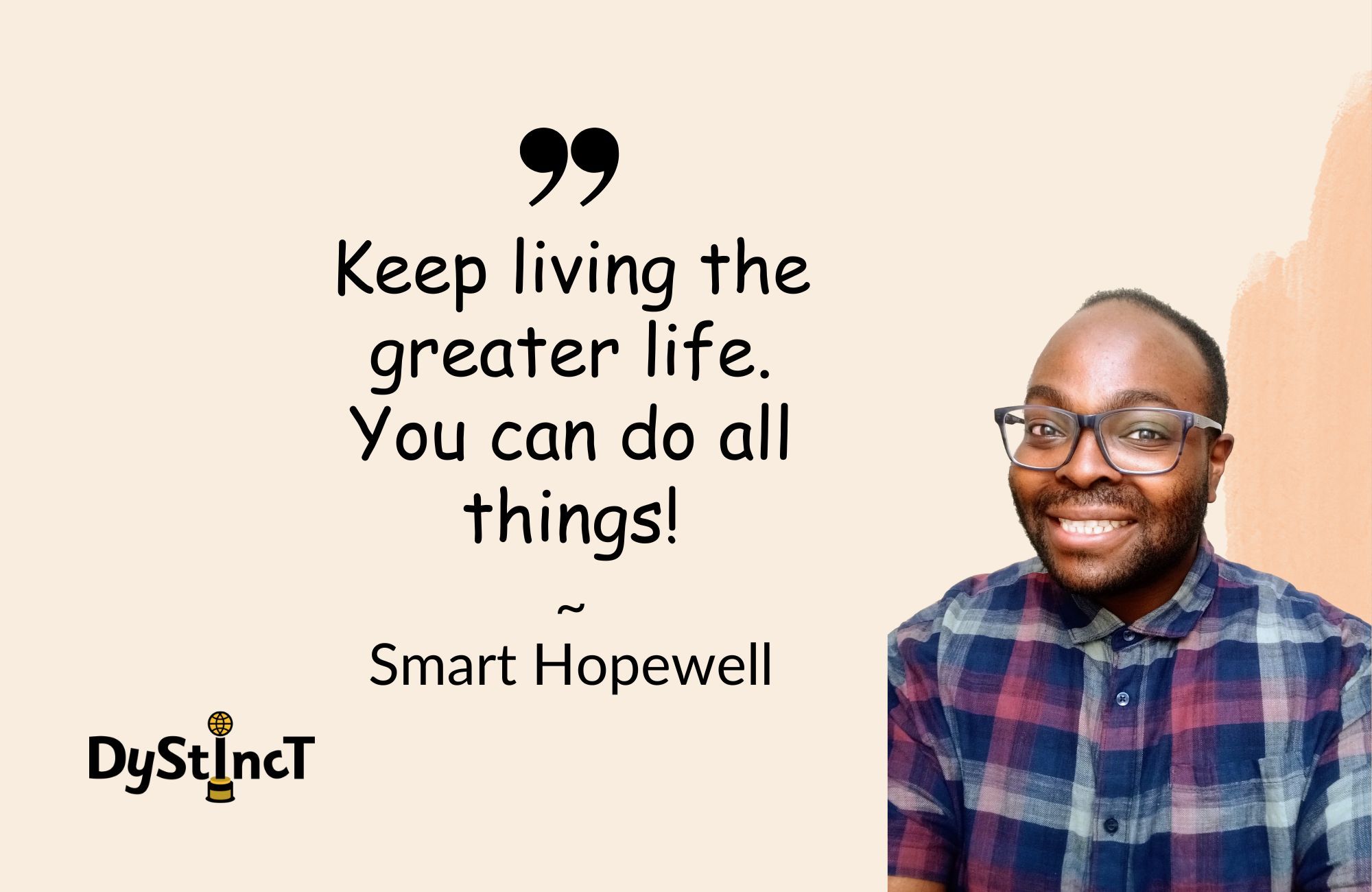
Extracts from Dystinct Magazine
Extracts from Dystinct Magazine








